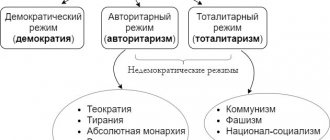Erudition is a concept that reflects the breadth of knowledge and multifaceted education. Developed erudition is manifested by a deep understanding of many things and finding connections between various areas of life. Erudites (those who have developed this quality at a fairly high level) are constantly engaged in expanding the range of their knowledge and deepening their existing ideas about the world. Thus, this is not only a superficial awareness of events taking place in the world and discoveries in the past and present, but also a deep understanding of these processes. We can say that an erudite is a specialist in several fields at once.
Erudition is not innate, and the level of its development depends solely on the efforts made by a person to constantly acquire new knowledge. This quality is directly related to education and has virtually no connection with the level of intellectual development.
But the concepts of education and erudition are not identical, since in relation to erudition there is a person’s internal need for constant development and overcoming his rudeness or lack of knowledge, while simply education does not provide this internal motivation. Knowledge can be obtained without enthusiasm, and with further choices, development stops, then erudition forces you to look for sources and opportunities to increase your level, regardless of your baggage. Erudition is an independent orientation that forces a person to engage in self-education, read books on topics of interest and go beyond training courses.
What is erudition?
Erudition is the ability of the human mind to assimilate and retain in memory a significant amount of knowledge and information from a wide variety of areas. On a personal level, this quality manifests itself as broad awareness, erudition , the ability to organize and systematize information received from various sources and, if necessary, explain it clearly.
The range of knowledge of an erudite person is distinguished by its breadth and depth - in addition to the highly specialized information he needs in his professional activities, he is keenly interested in new products from other industries not related to his work. Erudition is a product of continuous work on oneself , the fruit of constant self-development and self-education. For this reason, not every educated person is an erudite, because raising one’s own intellectual level requires not only a lot of work, but also a lot of desire.
Erudition and its advantages
An erudite person is a learned, well-read person who has thorough and deep knowledge in the field of some science, and is well-rounded.
- Erudition gives a person a pass into the world of strong people.
- It allows you to convince others that you are a true leader.
- A person has the ability to operate with a huge amount of information.
- Provides an opportunity to achieve rapid advancement through the ranks.
- An erudite person, when he learns some material, constantly strives to learn even more. Erudition is a necessary trait of a true leader.
- A person who has a large stock of knowledge can understand both a narrow field and other areas of science. He can easily become a role model and leader.
- An erudite person can easily get out of any difficult situation. He easily starts and maintains a conversation.
- Erudition allows you to gain respect for yourself and become an authority in the eyes of other people.
- Thanks to her, a person is able to create an excellent career.
- Erudition allows you to enjoy great success with people of the opposite sex.
- An erudite person easily becomes the soul of any company and is always the center of attention.
- A person who has a large stock of knowledge learns new sciences much easier while studying at a university. He is admired by teachers and students.
- In raising children, erudition comes to the rescue when little ones start asking a lot of questions. A parent who knows the answers to everything that interests children becomes an authority in their eyes.
My husband is a fairly erudite person. He is constantly engaged in self-development, is interested in various areas of life, science, and studies foreign languages. It was with his intellectual knowledge that he attracted me and interested me as a man. A husband easily becomes the life of any company, as he has a large amount of knowledge and easily finds a common language with different people.
Signs of an erudite person
Typically, erudite people do not consider their own intelligence to be their main advantage, do not strive for self-affirmation at the expense of others, or even try not to show off their intellectual abilities. An erudite understands that one cannot know absolutely everything, and therefore is interested in everything new. In addition, erudite individuals are characterized by other qualities, for example:
- Analytical mind. When analyzing various information, the erudite invariably uses logic, and he relies on it when choosing the most optimal way out of any life situation.
- Tendency to creative thinking. This ability helps erudite people successfully resolve a variety of issues and problems. A creative approach to current affairs allows them to bypass outdated stereotypical solutions to problems and come up with new, more effective ones.
- Quick adaptation to new conditions. This quality is very useful when changing place of work, residence, etc. because it allows a person to quickly integrate into a new environment and team, and then quickly navigate within it.
- Good organization. Erudite people love self-discipline; they strictly follow the daily plan developed the day before, which allows them to correctly distribute their own time and complete assigned tasks on time.
- The desire for self-development. Self-development is one of the main life incentives of an erudite; replenishing his own knowledge and skills is always his priority.
- Ability to make quick decisions. Relying on logic allows intellectuals to find the right solutions even in difficult and confusing situations.
- Excellent communication skills. This quality allows erudites to successfully interact with the people around them and convey their ideas and ideas to them in an accessible manner.
Five signs of an intelligent person.
Even if an intelligent person is an erudite, he does not consider this his main advantage. He always knows that he has room to strive to become even better. He does not boast of his erudition and achievements. He does not try to assert himself at the expense of less erudite people.
In addition, a smart person:
- Listens a lot, talks little. In communication, he likes to listen more than to remember. Do not prove your point of view, but listen to the words of your interlocutors.
- Filters out unnecessary information . The amount of information that enters the brain is impossible to remember. And it's not necessary. An intelligent person ignores stupid facts, meaningless evidence, unnecessary data. In addition, he may well forget some number or date - but why remember it if you can just write it down in your diary.
- Doesn't criticize. An intelligent person knows that erudition is not the limit of dreams, that without extensive knowledge you can be successful and happy. Therefore, he tries not to evaluate events or statements before considering the situation from different angles and delving into the essence of what is happening.
- Not afraid to make mistakes . One of the side signs of the withering away of erudition is a change in the idea of what it is shameful not to know. It is no longer shameful not to know the year of the abolition of serfdom. But the ability to get out of a difficult situation and the ability to survive are valued.
- Not afraid to seem stupid. This is a special talent of smart people. They are not afraid to appear incompetent and skillfully hide their erudition if the situation requires it. But this way he will more likely achieve his goal, because few people like abstruse, arrogant people.
conclusions:
- Erudition is the result of reading, comprehending and memorizing data from literary sources.
- Erudition today has ceased to be something honorable, but has become a hobby.
- Erudition is not an end in itself, but only a way to train the mind to develop thinking and a living mind.
Take the perception type test
What advantages does erudition give a person?
Naturally, erudition is one of the positive personal qualities. Among its main advantages, the following advantages should be noted:
- It is not difficult for an erudite to maintain almost any conversation, while surprising the interlocutor with his knowledge, thanks to which he feels comfortable in different companies;
- Intellectuals have a greater chance of getting a good job, and they also move up the career ladder faster;
- The ability to assimilate new knowledge and skills gives such people the opportunity to quickly acquire a new profession;
- The opinion of an erudite person sounds weighty and authoritative to others, which allows him to successfully occupy leadership positions;
- An intellectually developed person can easily operate with a significant amount of information;
- Such people are less likely to suffer from Alzheimer's disease and senile dementia;
- An erudite person attracts increased attention, which helps to gain success with the opposite sex;
- Erudites easily make acquaintances and make new business connections without problems;
- They are listened to when solving work issues, since their opinion is considered competent;
- An erudite person is characterized by self-confidence, which allows him to achieve success in various endeavors;
- Children of intellectuals develop faster than their peers, as their parents gradually pass on their own knowledge to them.
Erudition, intelligence, intelligence - what are the differences?
Erudition presupposes extensive knowledge about something. But it’s one thing to be a “walking library,” but quite another to be able to apply your knowledge in action. Erudition without practical application is an opportunity to show off your intellect or memory on occasion and nothing more. Moreover, false erudition goes hand in hand with pride, narcissism, self-satisfaction, and vanity. And this is already a negative quality.
Take a character test
Erudition does not automatically qualify one as a genius. But there are cases when such a superpower may even be a sign of mental deviation. There is a disorder called “Savant syndrome,” a condition in which a person suddenly develops knowledge in one or more areas. Such “islands of genius” appear in some narrow area. For example, savants remember all the works of Shakespeare by heart or can draw a detailed map of the streets of an unfamiliar city from memory. Outwardly, they differ little from those around them, but communication and socialization are difficult for them.
Do you want to make better decisions, find your ideal career, realize your maximum potential and receive instructions for individual development?
?
All this can be done using the Human Design
. Build your map and get basic decryptions for free.
Indeed, we will never need most of the memorized information, and erudition itself brings little benefit - someone who gives the impression of a sage thanks to encyclopedic knowledge may be completely unable to solve simple life problems. Another disadvantage of “naked” erudition is the lack of critical thinking. While absorbing information from different sources, a person is simply unable to assess their reliability.
But this does not mean that you need to abandon memory or logic training - it is worth distinguishing between similar erudition concepts:
Erudition and broad outlook.
The deep knowledge of an erudite only reflects the fact that a person is intensively studying some area. This knowledge is not necessary or vital on a daily basis and in itself has no practical benefit. But the general outlook is the information that we use every day. Having a general outlook really makes life easier and helps you apply your knowledge in action.
Erudition and lively mind.
As Socrates said: “Knowledge is not intelligence” - it is not difficult for an ordinary “cramming” person to gather information and remember it. After all, he can simply remember a lot of data without understanding its content. But to analyze what you read and draw your own conclusions - alas. Automatic erudition sometimes “clutters” the brain so much that meaningful answers are lost and the excitement of the researcher is dulled.
Erudition and memory.
Erudition depends on the ability to memorize and memory capacity. But the winner is not the one who theoretically knows more, but the one who quickly retrieves the necessary information from memory.
Ideally, an erudite person is one who has all these abilities equally developed. But mental abilities are similar to physical ones - you can train your biceps hard to win in arm wrestling, or you can train a little of everything to be a healthy person.
The difference between erudition and education
Naturally, there is a lot in common between education and erudition, but there is one significant difference between them - an erudite is necessarily educated, but not every person with an education is an erudite. It is no secret that many educated people do not want to develop and gain new knowledge, preferring to simply take on faith the material provided to them by teachers during their studies.
An erudite, on the contrary, tends to doubt previously acquired knowledge, and, therefore, to develop, constantly receiving new information from various sources and analyzing it. When questioning something, an erudite immediately begins to look for information on the issue that interests him, after which he thoroughly examines the available information and comes to his own conclusions. In essence, intellectuals do not tend to perceive even an established point of view as the only correct one.
What it is
It cannot be said that some people have erudition and others do not. In this case, it is appropriate to consider the level of its development and implementation in various areas. There is an opportunity to increase the level of erudition, but the level can also decrease if you do not make additional efforts. This does not mean that once acquired knowledge will be forgotten or become irrelevant, but over time its relevance may be lost or some theory may be refuted - erudition is the ability to track dynamic changes. In addition, the level of erudition that is considered quite high for a fifth-grader will no longer be sufficient for the head of a company. Similar examples occur quite often when, after a lot of praise, a person stops engaging in his own development and remains at the same level without development.
Developed erudition arises only with the constant absorption of new information, and it should concern not only a narrow professional sphere, but also take into account aspects of many global life topics. Of course, this is a process of education, but not fixed by educational institutions and additional courses, but by a more independent contribution to what is happening. This can be expressed in reading not one, but various sources, and optimally opposing opinions. This also includes an active creative interest in other areas. So a person can study to become an architect, take language courses, read historical literature and become interested in plumbing work. His level of erudition will be significantly higher than that of an architect who has a deep understanding of his field, but does not go beyond it.
How to develop erudition?
A number of personal growth specialists do not deny the possibility of independent development of erudition, since a person’s abilities are, in principle, not limited. General concepts of erudition are very subjective, as are opinions on this matter, and therefore it is impossible to say exactly what knowledge an erudite should have. The main point here is a person’s personal interest in developing and expanding his horizons. Now here are some universal tips for those who want to improve their intellectual level:
- Read more scientific, historical and philosophical literature, as well as educational aids;
- Do not trust everything you hear - always check and analyze incoming information, using several sources;
- Encourage your own curiosity, expand your range of interests, learn new and unknown things;
- Communicate with people who have something to learn from, be in the company of erudite and educated people more often;
- Don’t forget about cultural events, in particular, trips to museums, theaters and cinemas, exhibitions, concerts, scientific conferences, etc.;
- Give preference to scientific documentaries;
- If you become interested in any area, study it as deeply as possible, do not limit yourself to just superficial information;
- If possible, try to travel and get acquainted with the culture of other countries and peoples;
- Work on your speech, introduce new words and terms into it;
- Reflect on the books you read and the information you received, form your own view on a particular issue;
- Do not fill your brain with unnecessary and useless information, avoid negative news, intrusive advertising and aimless pastime;
- Constantly train your own intelligence. To do this, you can start learning a foreign language previously unknown to you, master the game of chess, etc.;
- Expand your circle of acquaintances based on your interests, share your knowledge with new acquaintances, family and friends.
How to become more erudite?
To become smarter, you don’t have to read scientific articles and encyclopedias for days. There are simple ways to increase your IQ. Want to develop a valuable new skill? Yes, easily! The network contains materials from leading experts in any field. Now is the golden age for those who are ready to invest in themselves and the future. For example, 13-year-old Michael Sayman mastered coding with the help of Google. The young genius's mobile game was included in the world's top 100 applications. As new competencies increase, so does the number of skill combinations that create the potential for new breakthroughs.
“From the point of view of banal erudition...”
Taken out of context, the expression became quite popular and was intended to ridicule the excessive overload of scientific terminology in a number of texts. When exactly the phrase appeared, no one can answer for sure. All we can say with certainty is that this funny expression is decades old. The ending of this sentence is as follows: “From the point of view of banal erudition, not every individual is able to ignore the tendencies of paradoxical abstractions.”
Repeating this phrase at a fast pace can be an excellent exercise for those who would like to practice public speaking and improve their rhetorical skills. If you replace complex scientific terms in a sentence, you can clearly see the meaning of the entire expression, namely: “Some people can see meaning in non-existent and intangible things.”
Thus, the word “eruditeness” does not have any special meaning. What was important here was not the meaning, but the form. The first part of the expression can be a great place to start when answering any question.
How to Raise Broad Awareness
The general level of awareness is directly influenced by your social circle. The more time a person spends in contact with others, the more information he learns, and its assimilation is much easier than if he were forced to read the same facts. However, if you surround yourself only with artists, you get a set of approximately the same topics and events. Therefore, it is necessary to strive to be surrounded by various people with multifaceted interests, and of course their level of knowledge in any topic should be higher than your own.
An important point in any development is interest, and regarding erudition, it plays a paramount role. It is impossible to remember information that is both not needed for work and not interesting personally. Therefore, even when choosing a topic that is not entirely clear and interesting for study, it is worth organizing the entire process in advance in such a way as to periodically tone up passion. An interesting company that will not allow you to abandon training or a system of self-reward for achieving certain levels is perfect for this.
Choose a hobby instead of watching TV in the evening. In order for free time activities to be beneficial, you need to create a certain approach. For example, learning a language will have a greater impact on the development of general erudition if you directly communicate with people from different countries, via Skype or other programs, than just learning a dictionary. Collecting, which involves learning the history of each thing or the culture of the country where it was made, turns the accumulation of things into a developing personal process.
The facts that a person learns must be shared and discussed with friends, especially if there are disagreements and controversy arises. The brain is designed in such a way that the more we explain to others the structure of something, the more we ourselves begin to understand what we share.
It is also useful to consider any new information from different angles - this is what develops broad opportunities for knowledge. For example, having learned about the structure of a technical device, you can fill in the gaps regarding who invented it and when, and then study the biography of this person. Any new information brings with it new opportunities for study - the main thing is to notice them and criticize them.
The more critical your thinking is, the broader your horizons become. Not to take it for granted, but to look for why it is so, not to learn a theorem, but to watch its proof - expands awareness and makes life more interesting.










